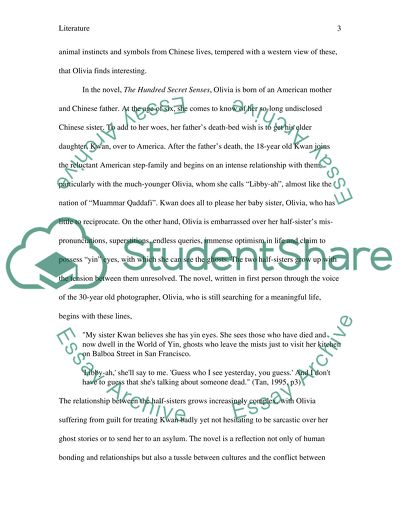Cite this document
(“The Hundred Secret Senses by Amy Tan Book Report/Review”, n.d.)
Retrieved from https://studentshare.org/literature/1500317-the-hundred-secret-senses-by-amy-tan
Retrieved from https://studentshare.org/literature/1500317-the-hundred-secret-senses-by-amy-tan
(The Hundred Secret Senses by Amy Tan Book Report/Review)
https://studentshare.org/literature/1500317-the-hundred-secret-senses-by-amy-tan.
https://studentshare.org/literature/1500317-the-hundred-secret-senses-by-amy-tan.
“The Hundred Secret Senses by Amy Tan Book Report/Review”, n.d. https://studentshare.org/literature/1500317-the-hundred-secret-senses-by-amy-tan.


